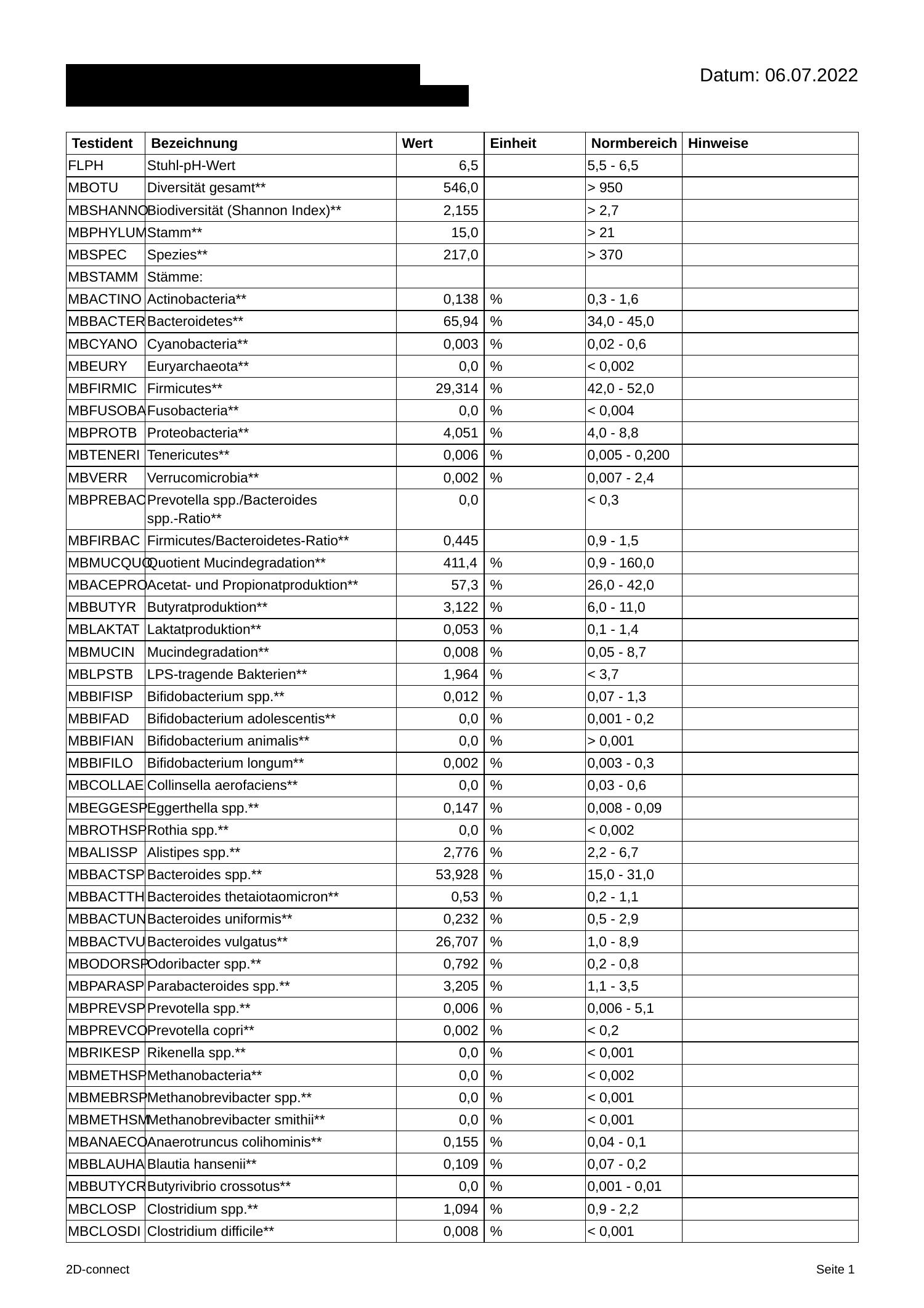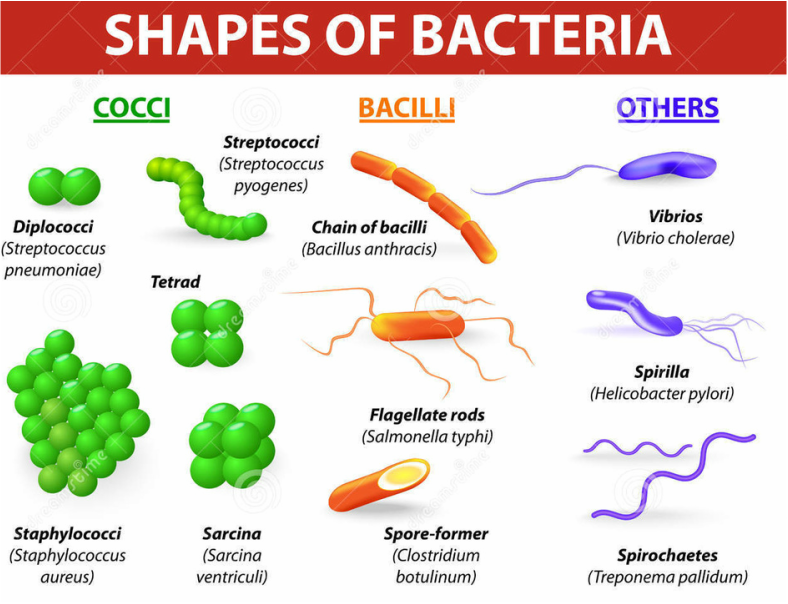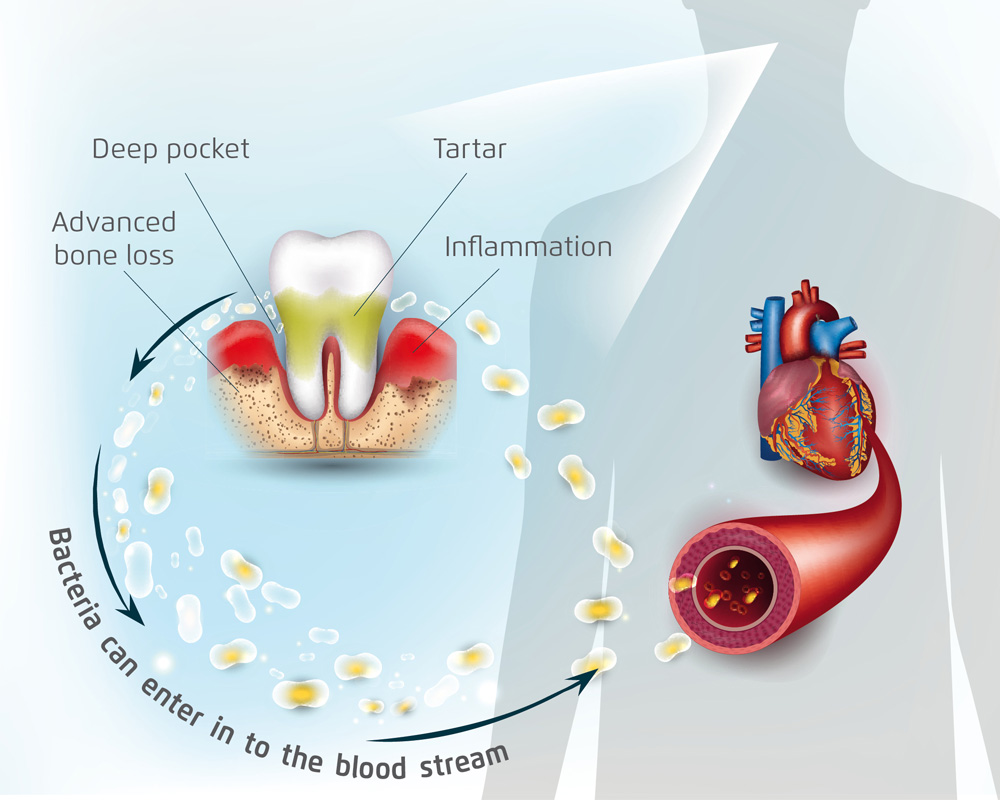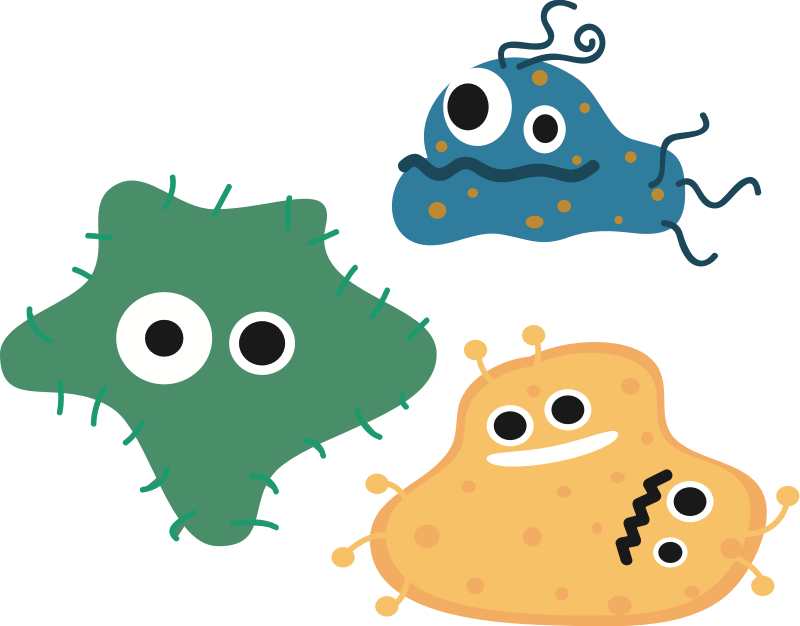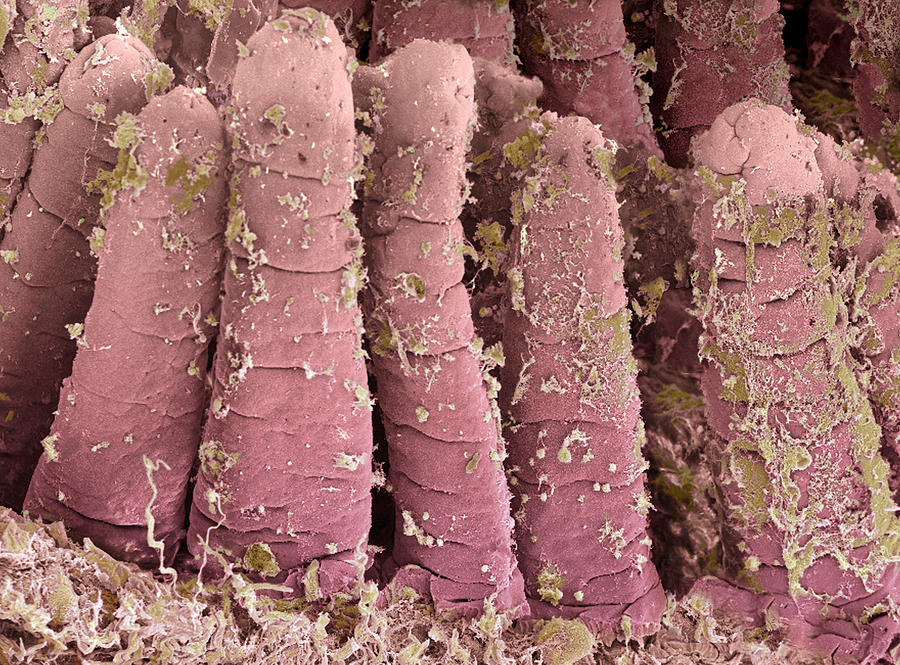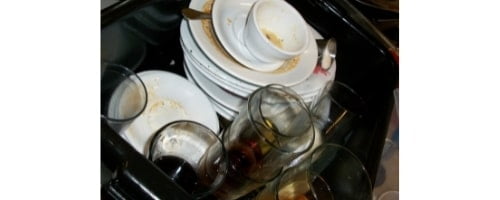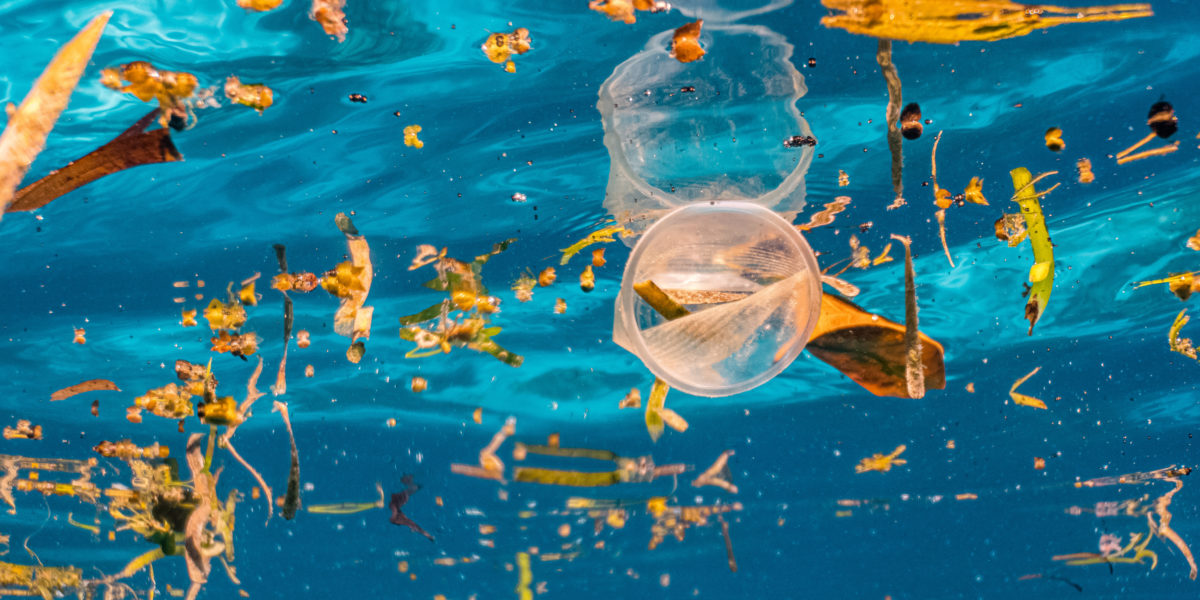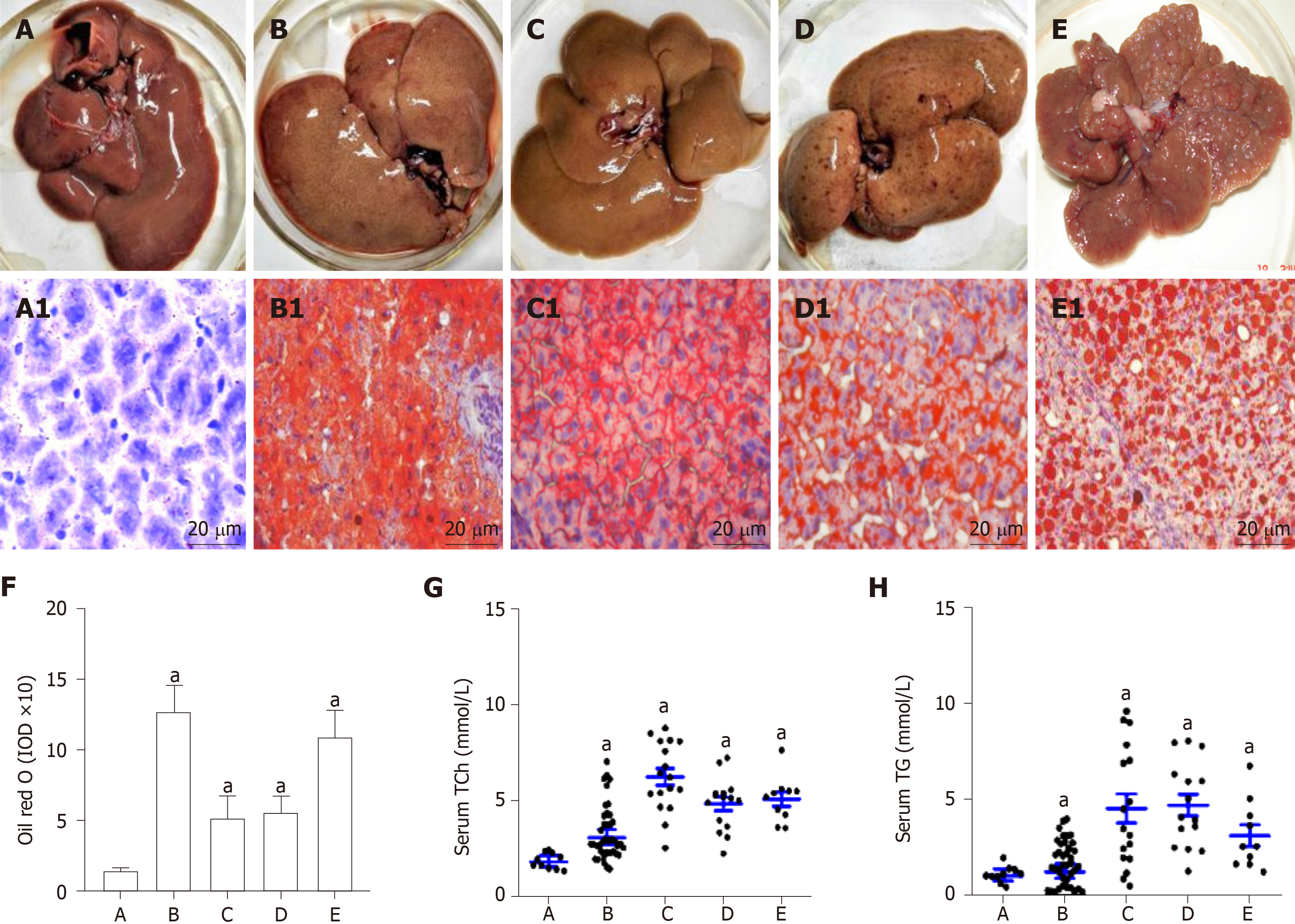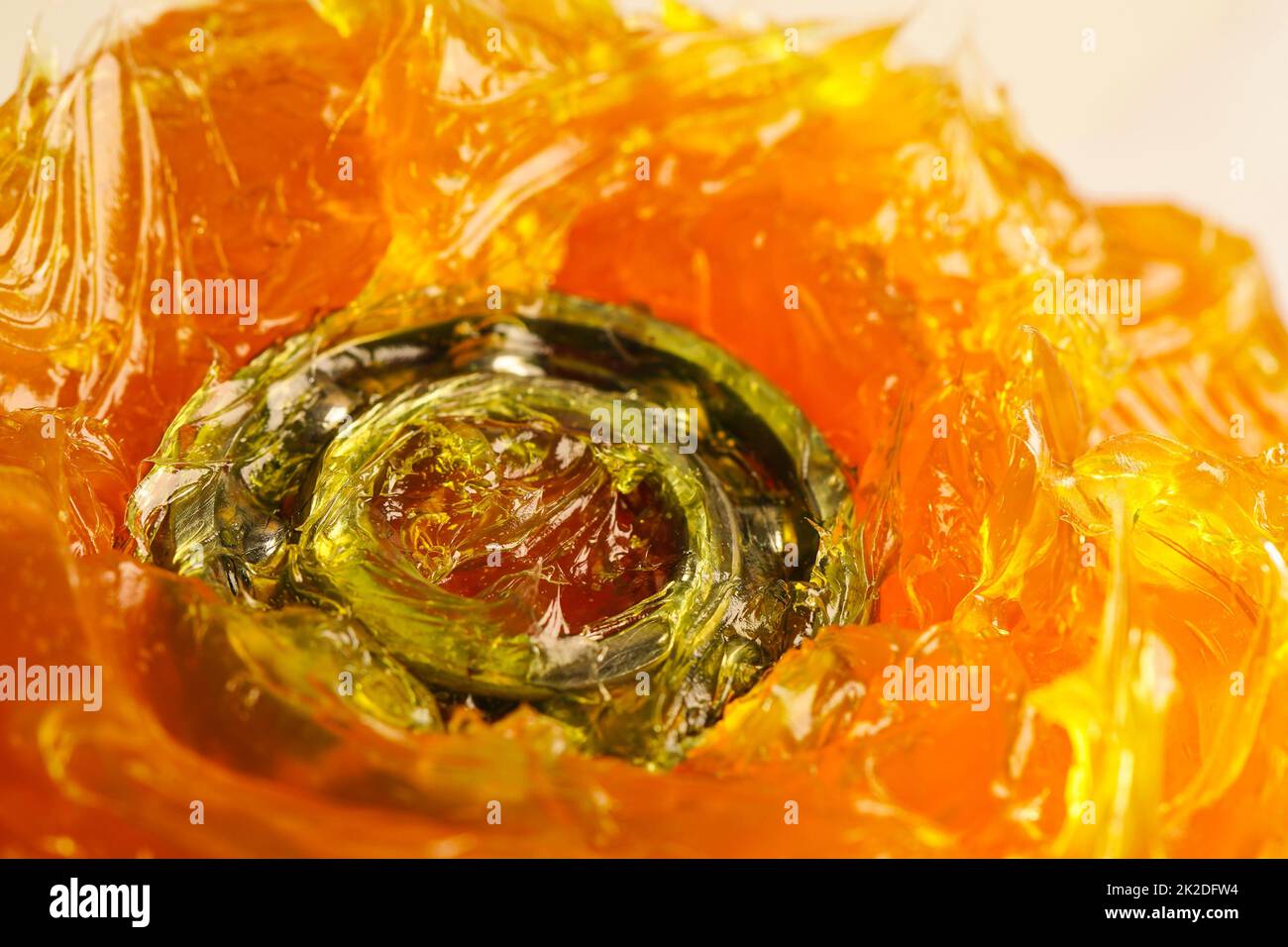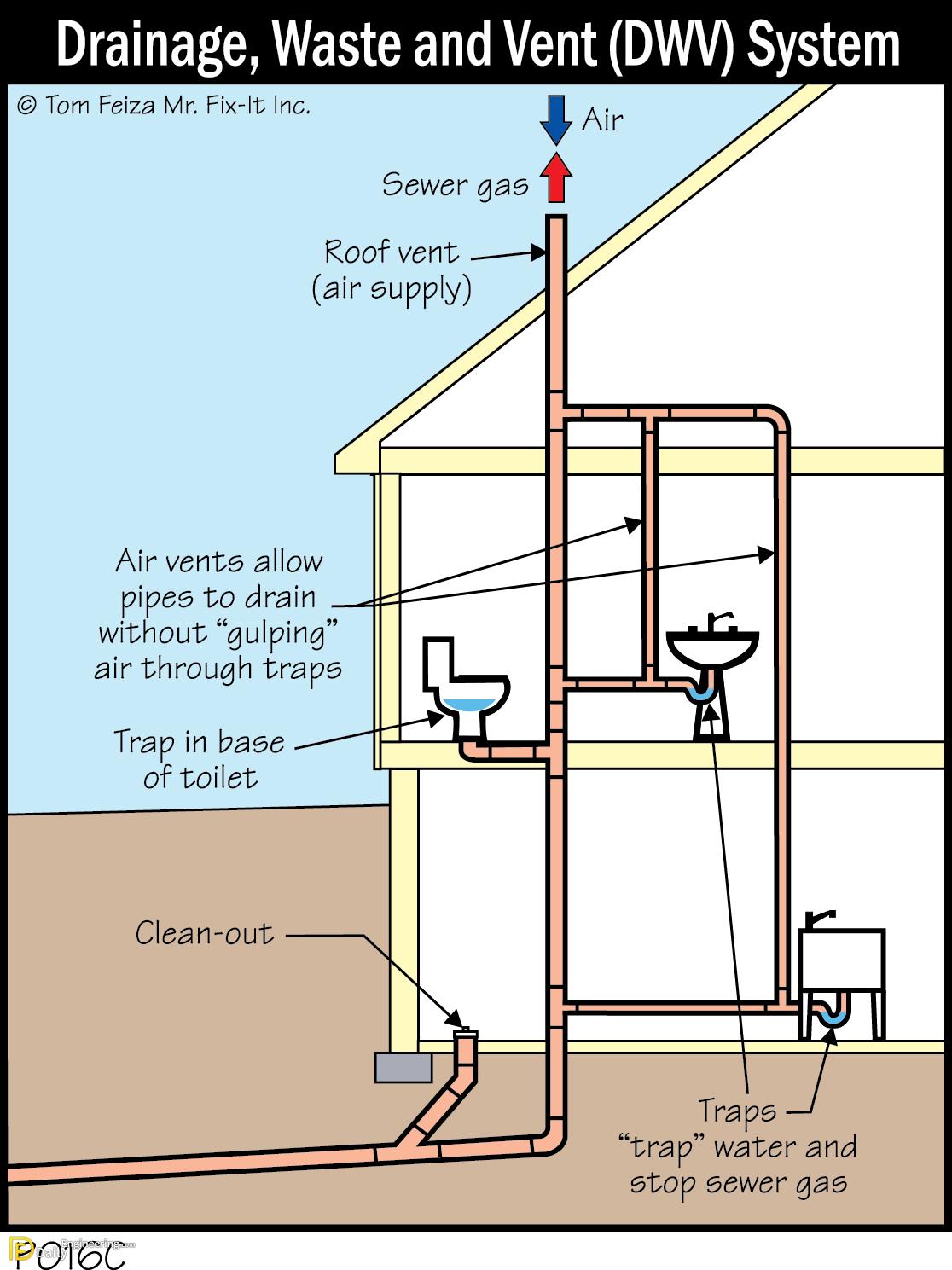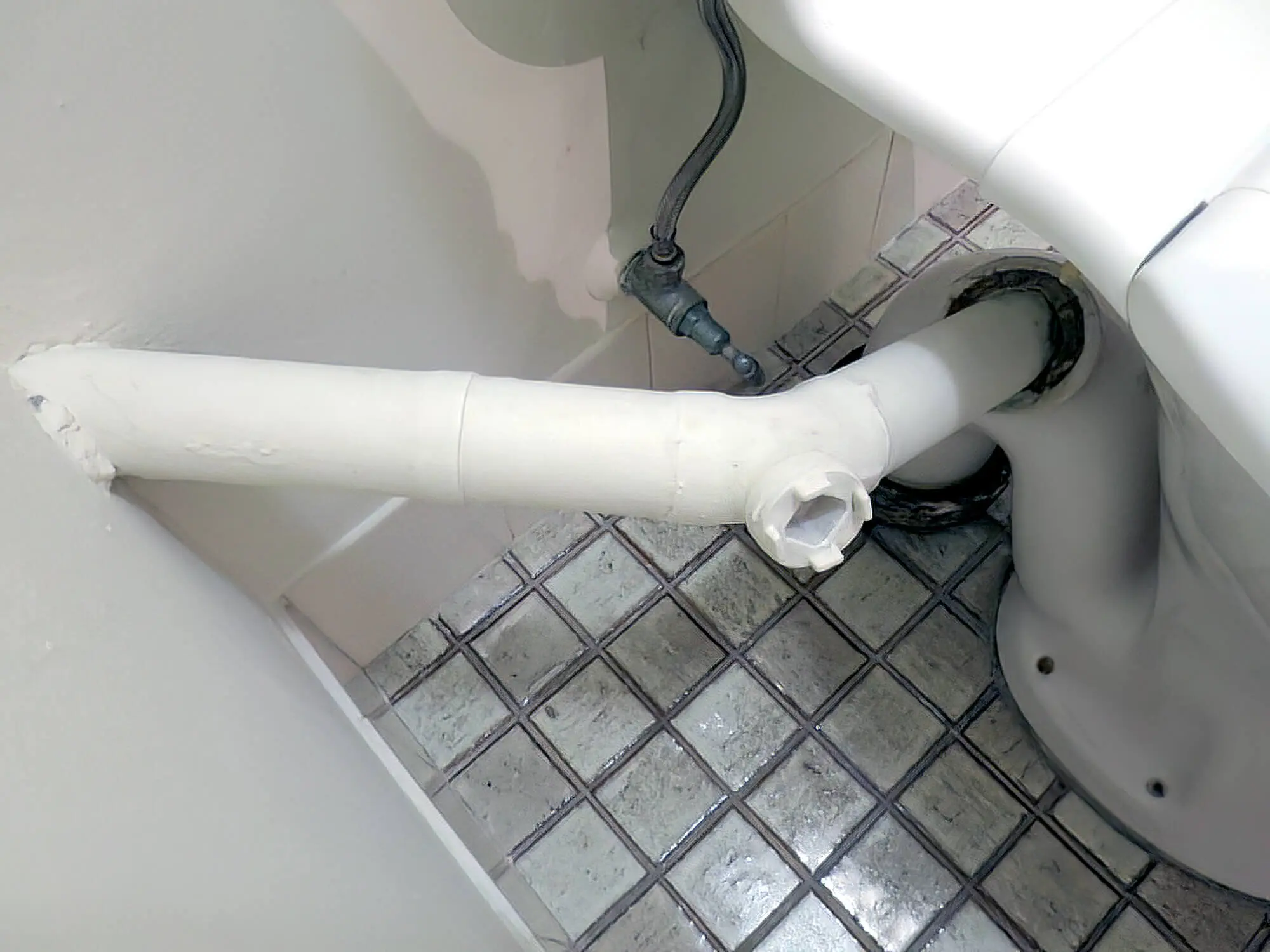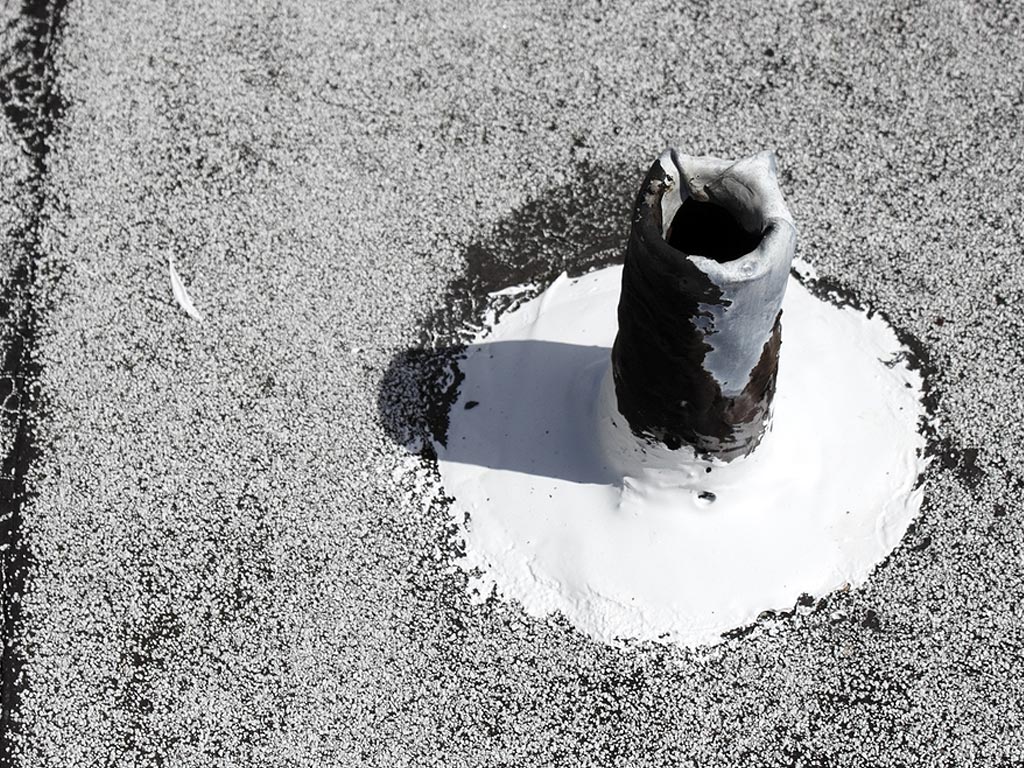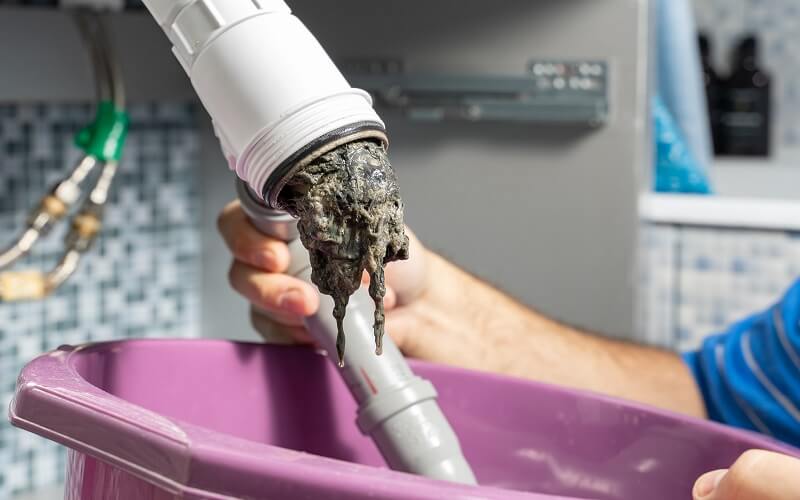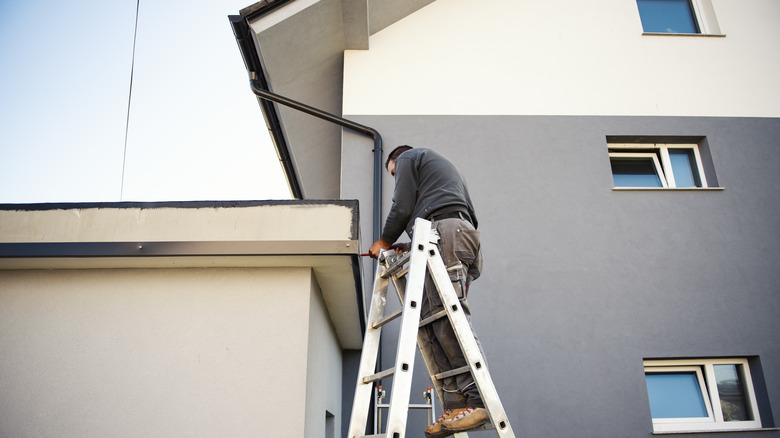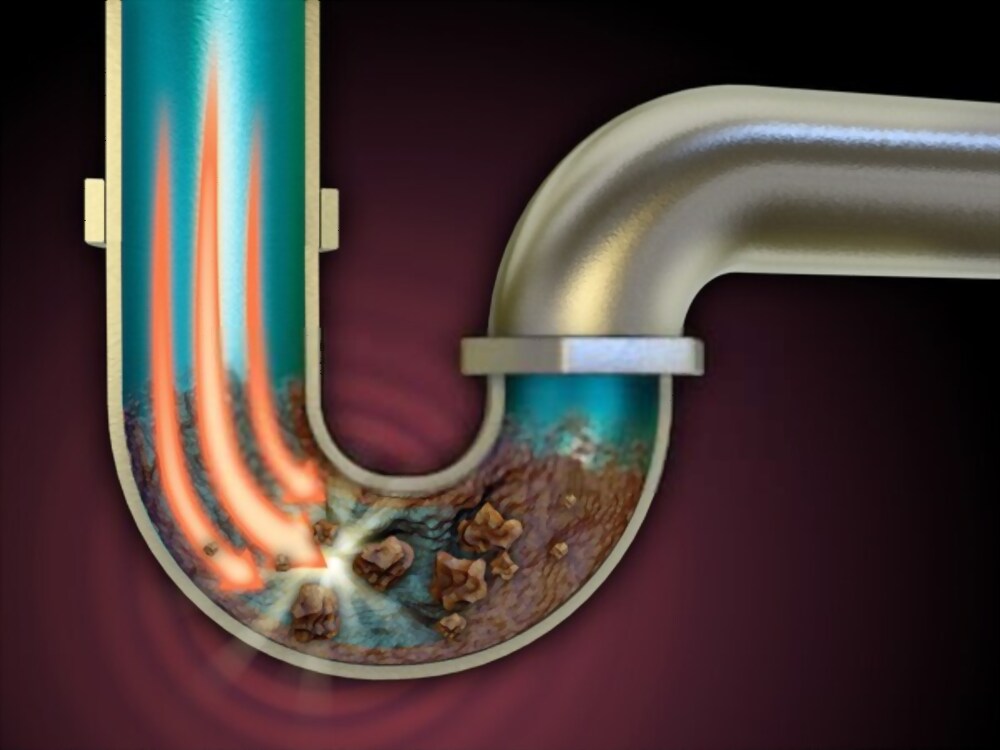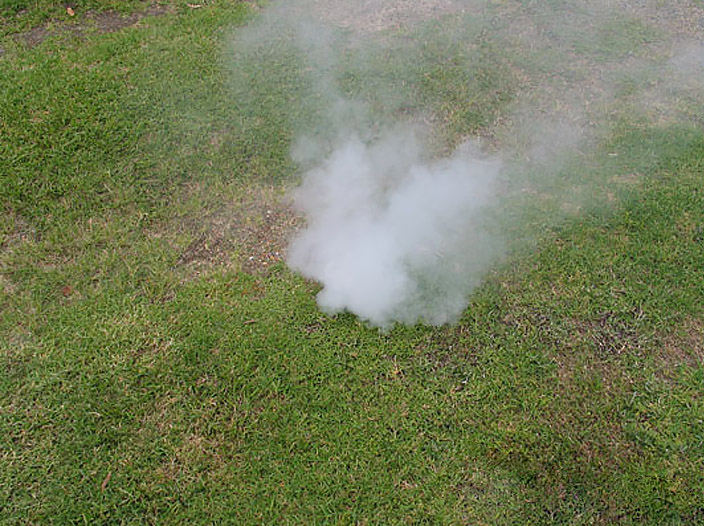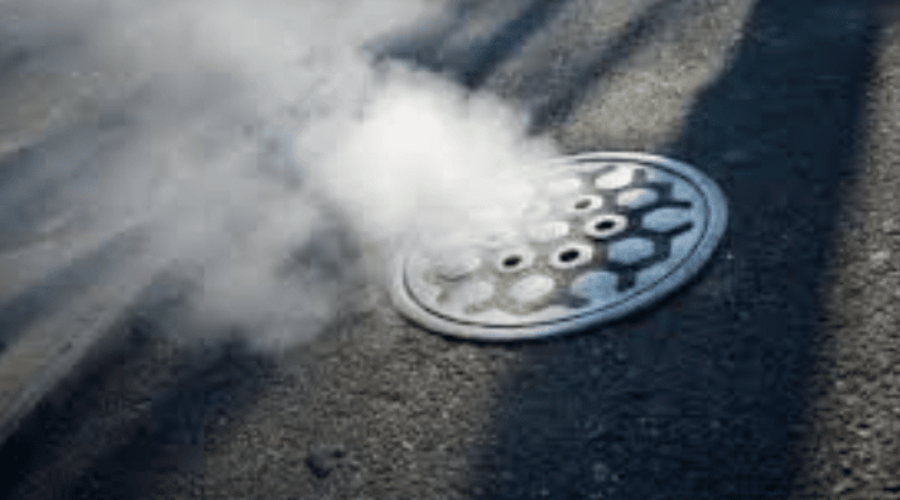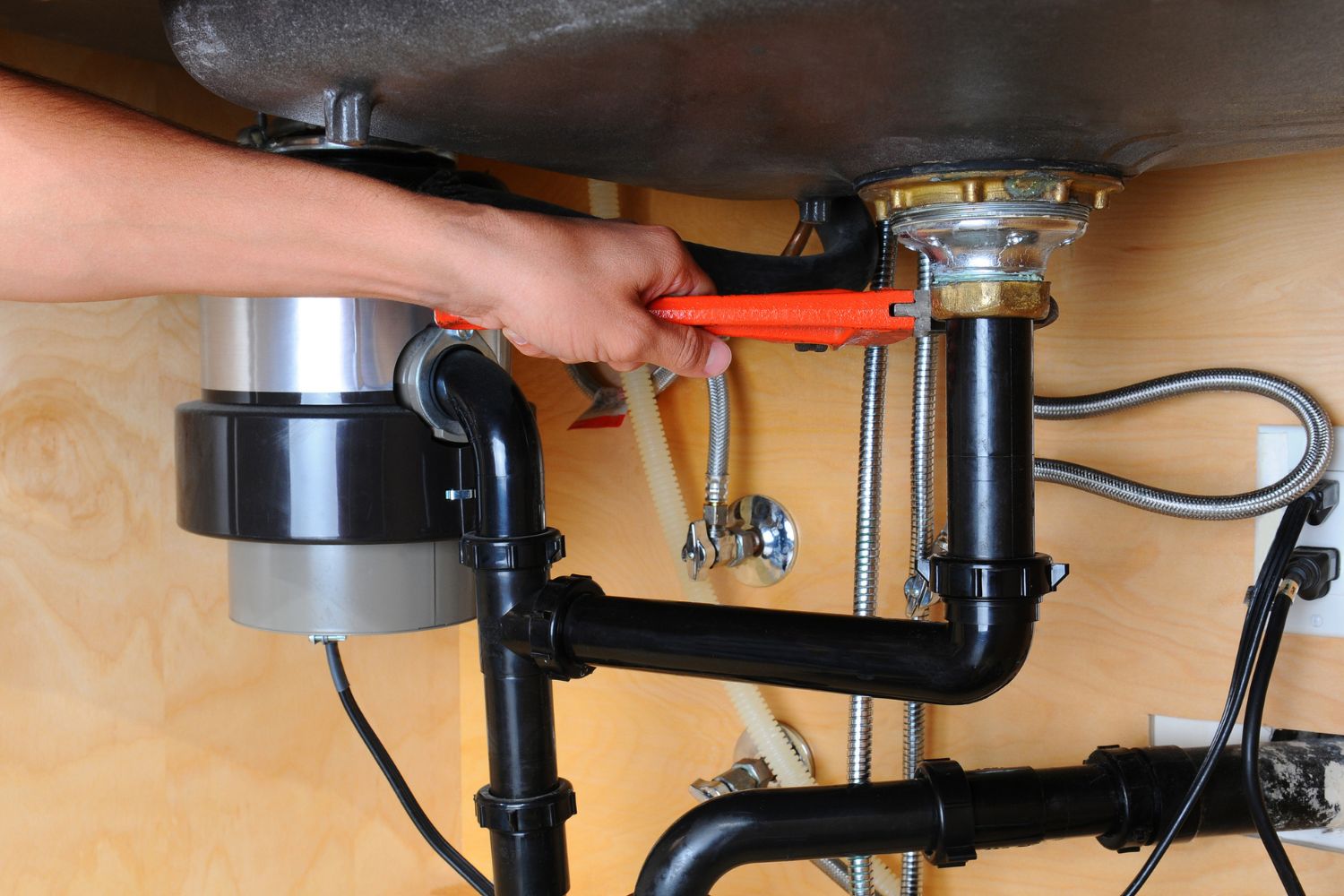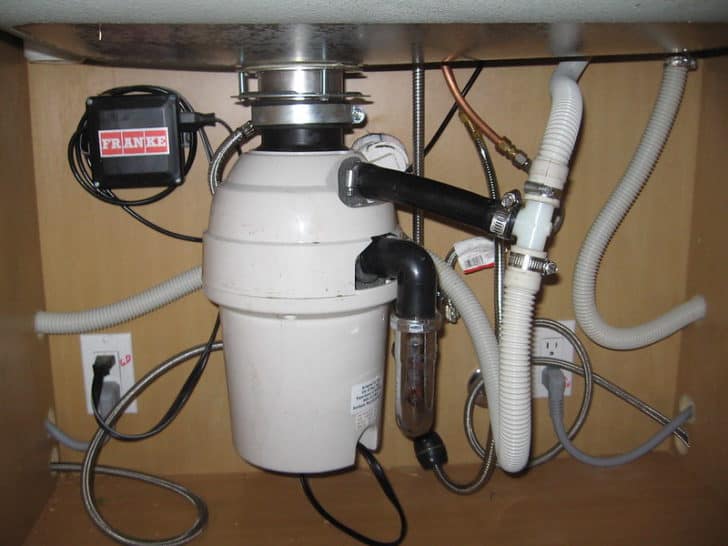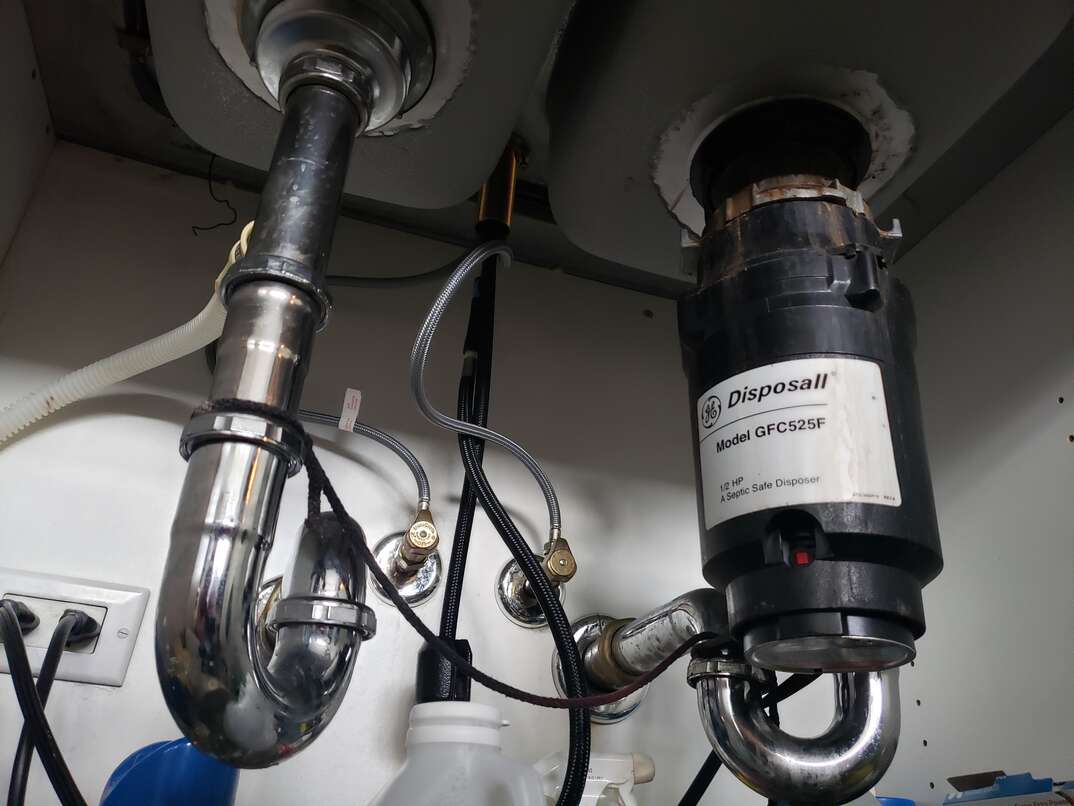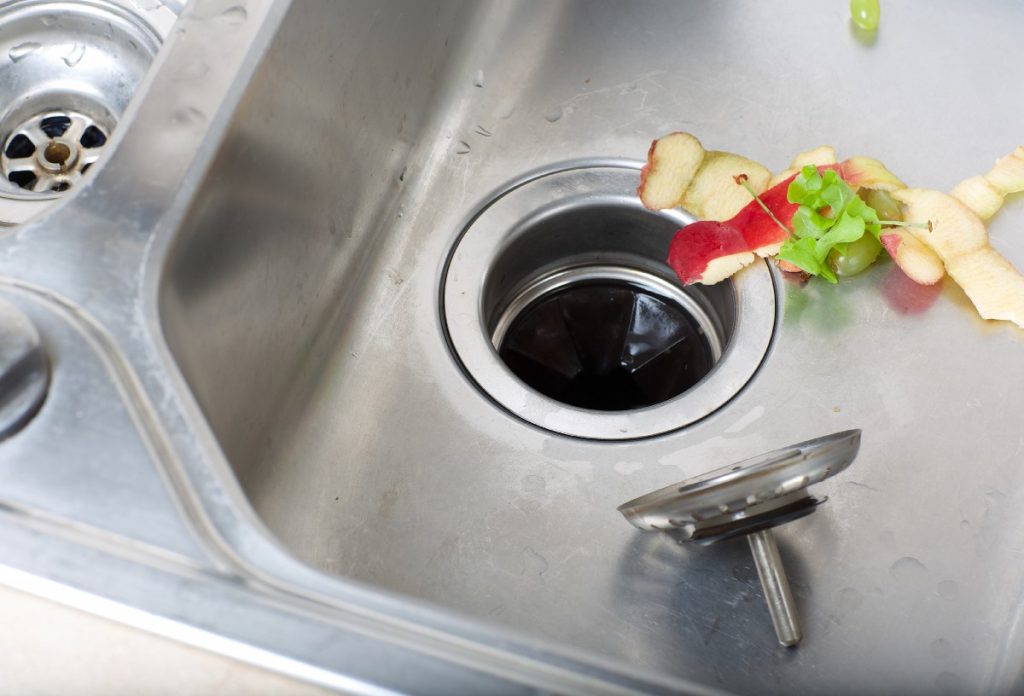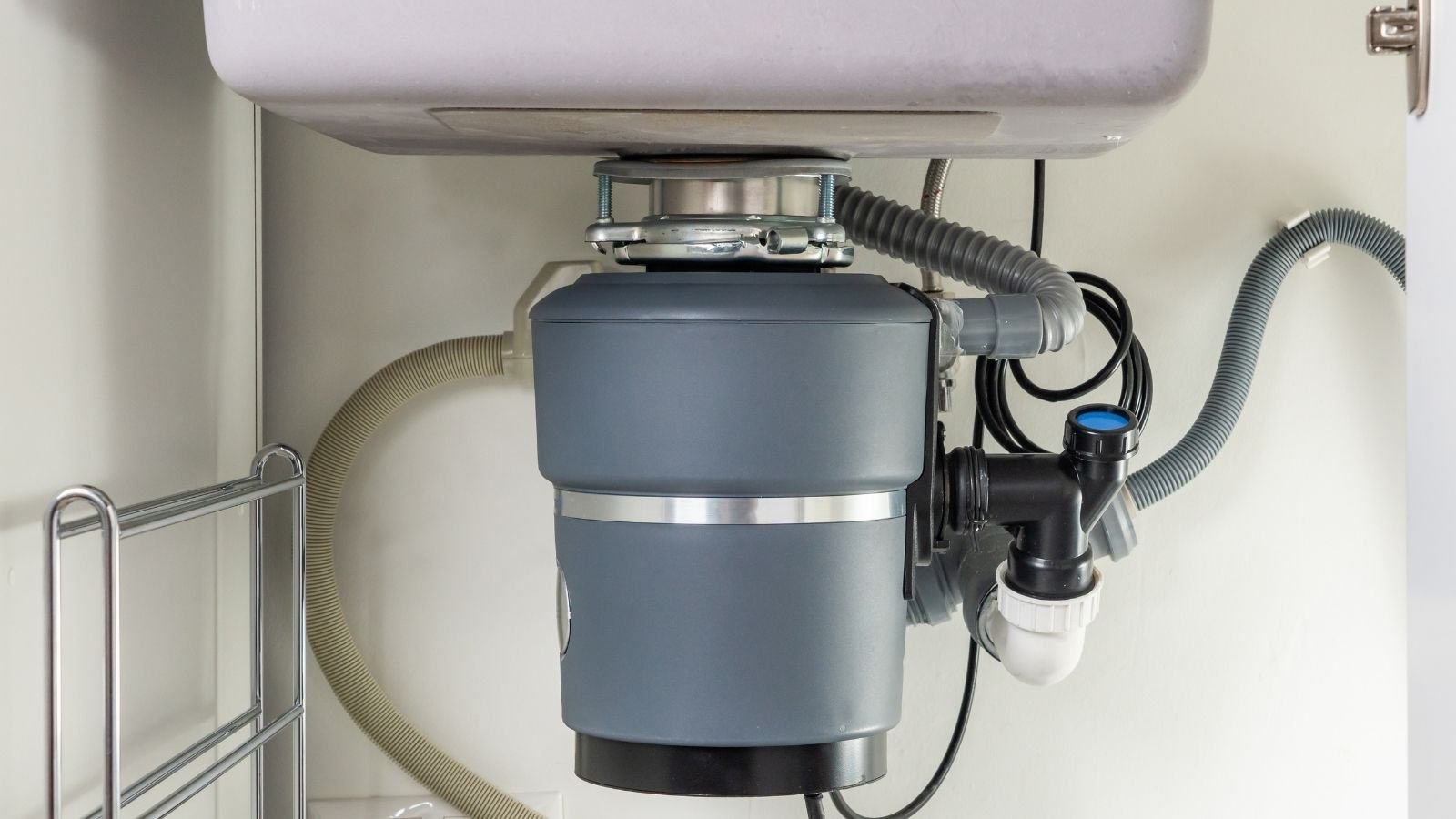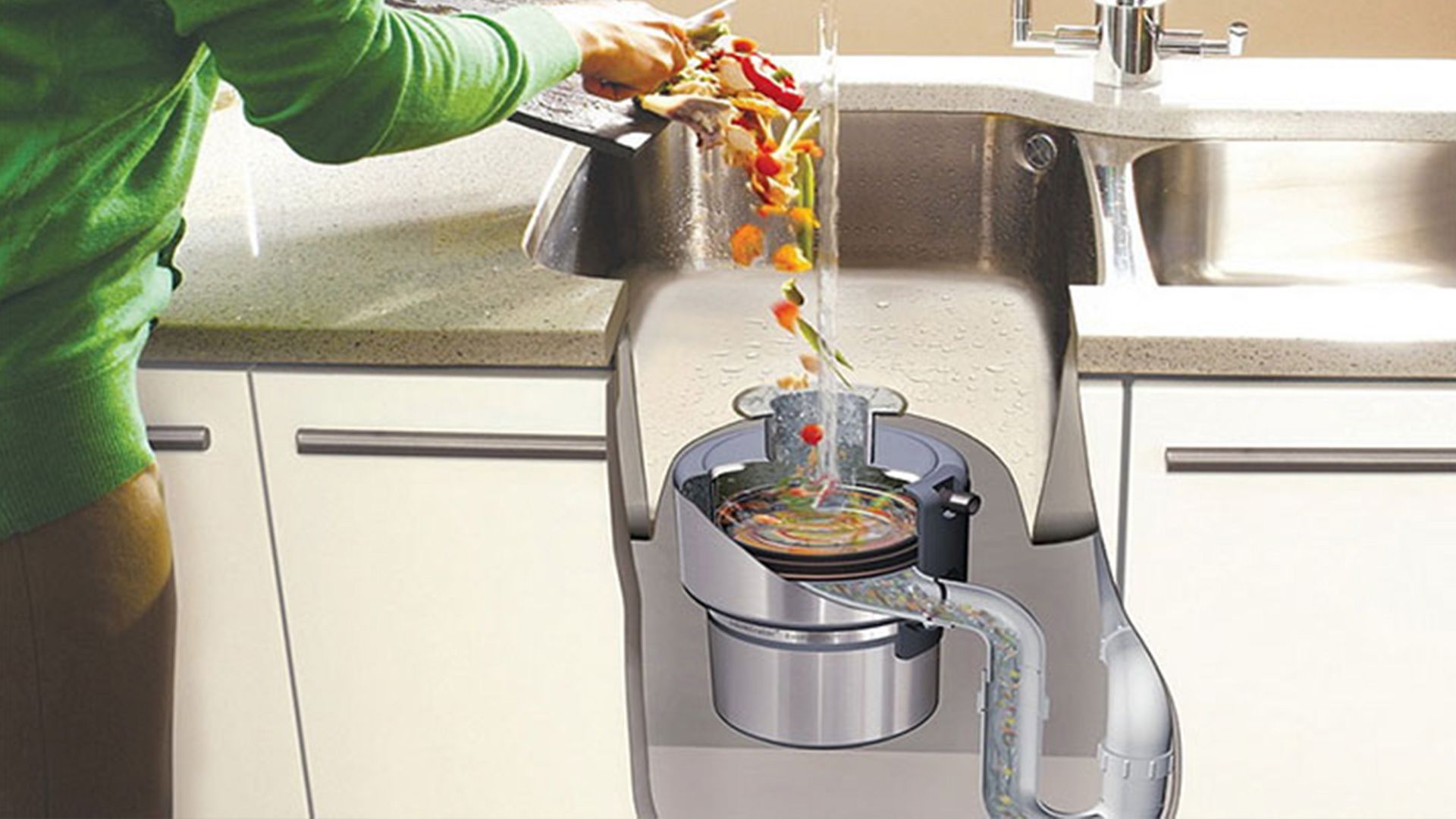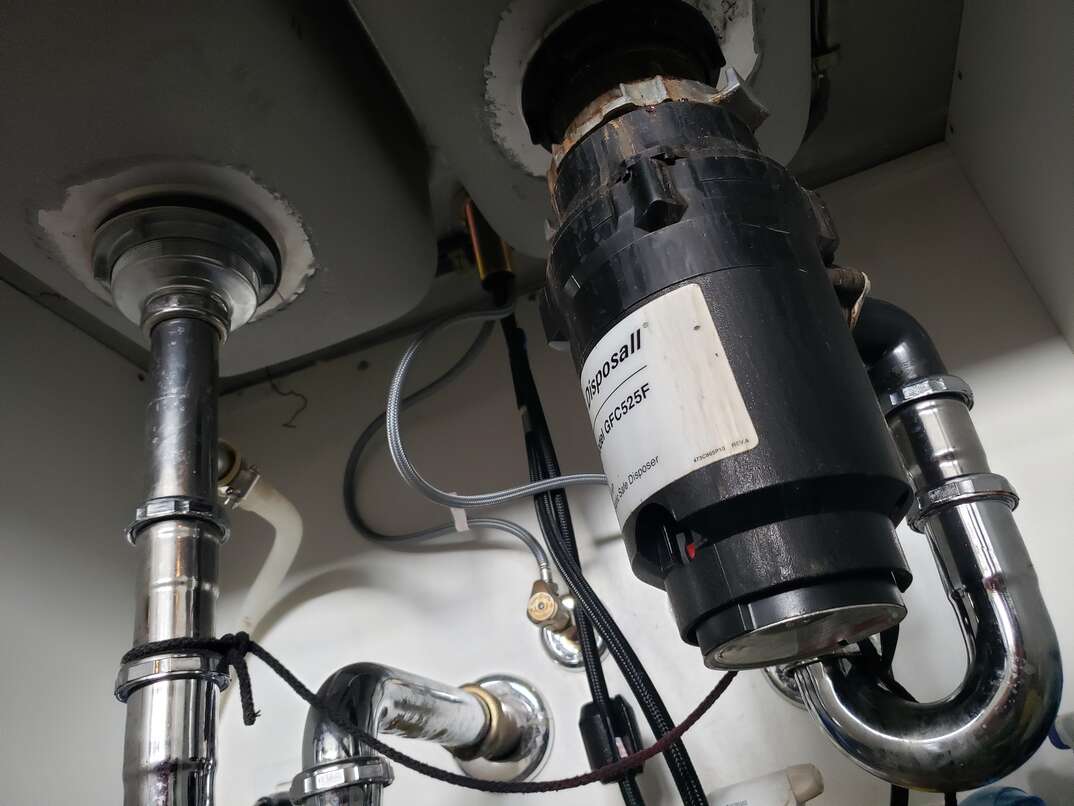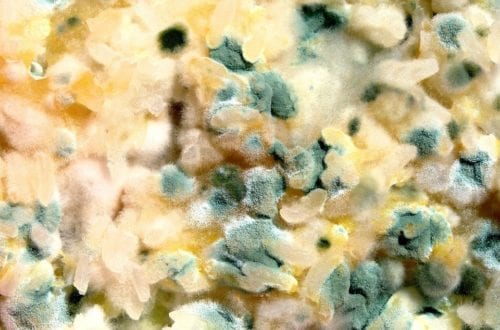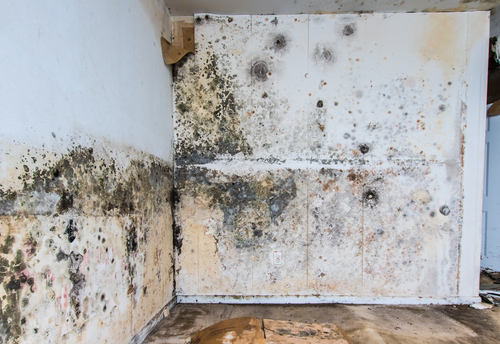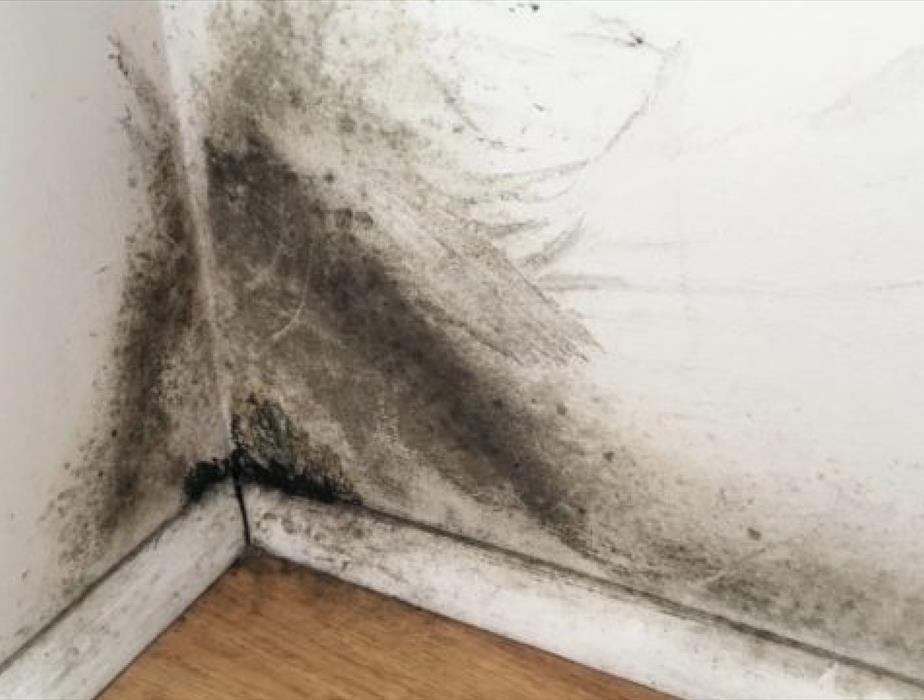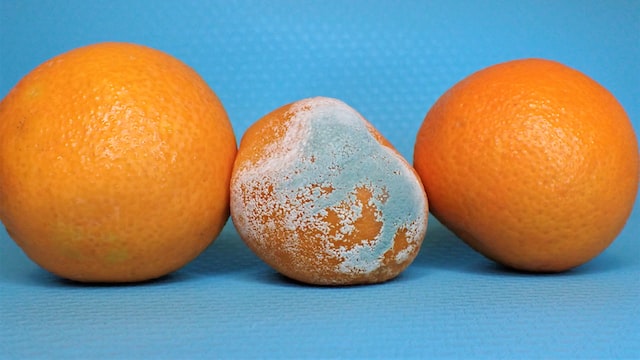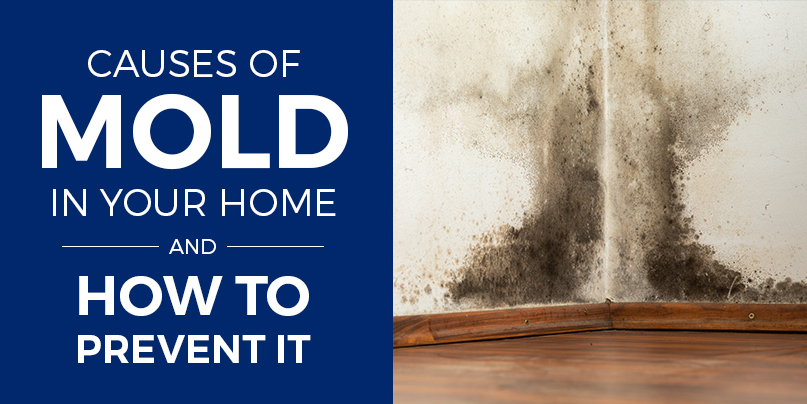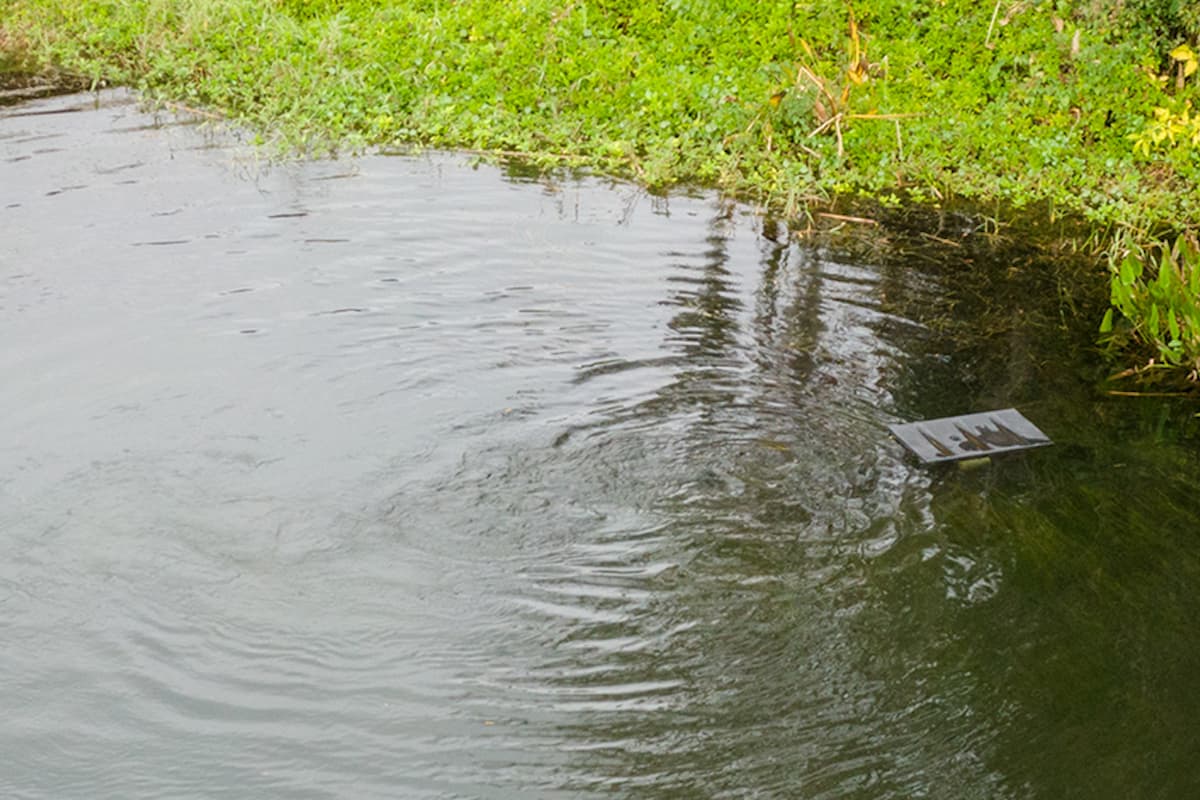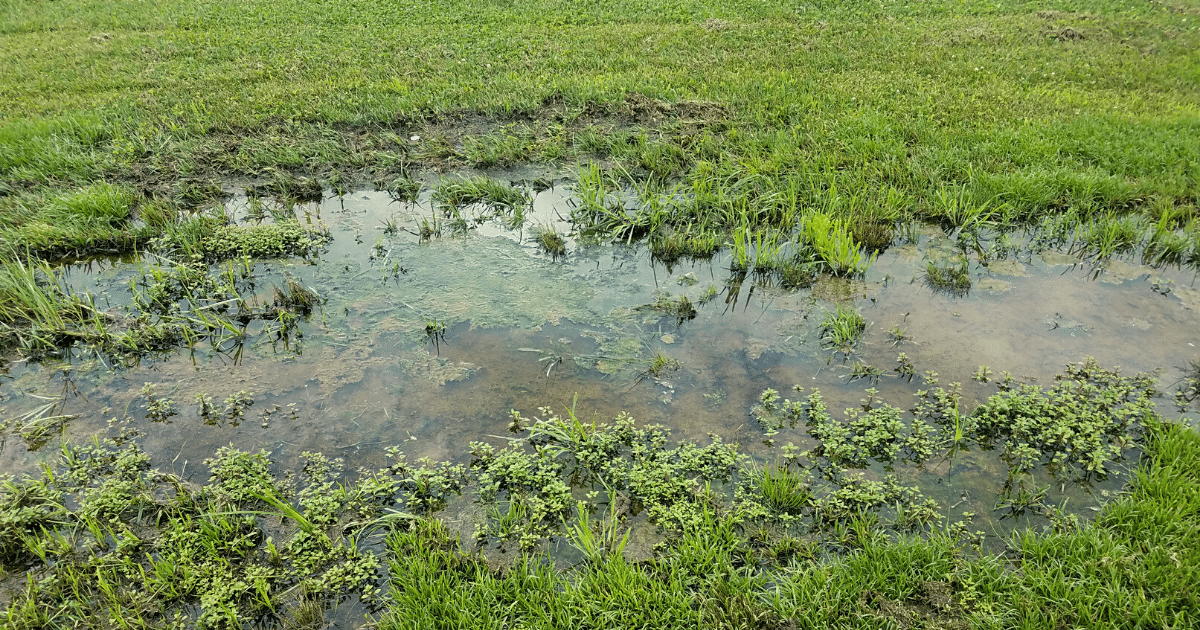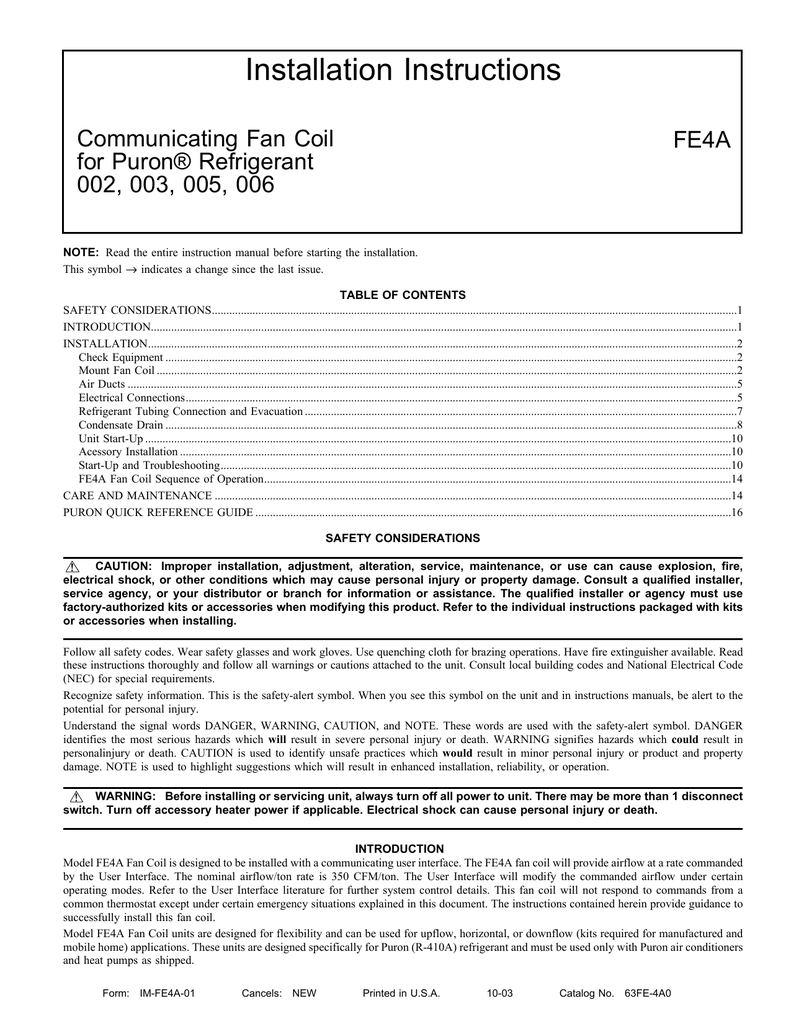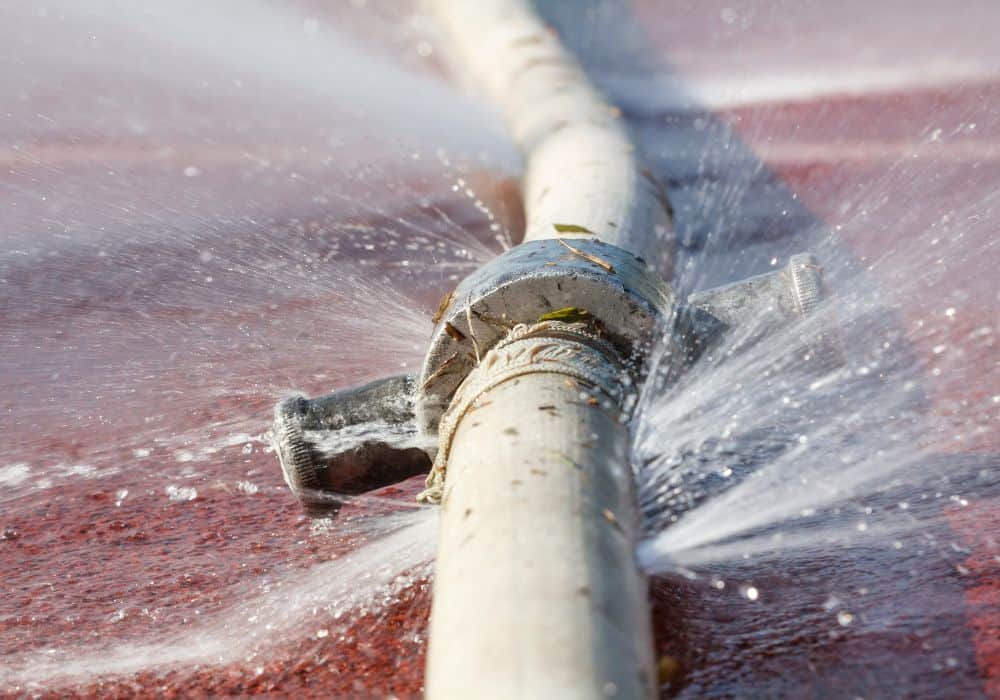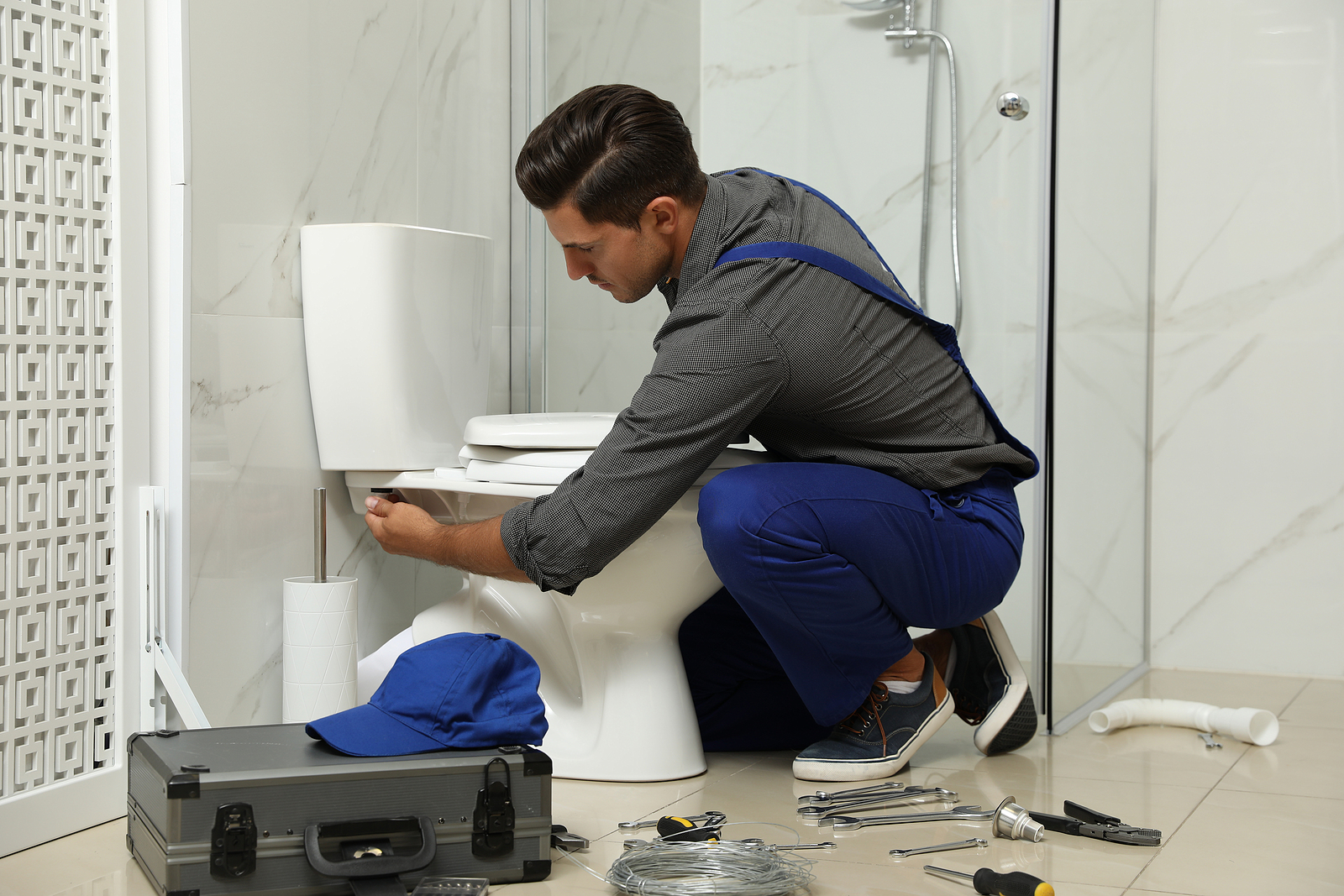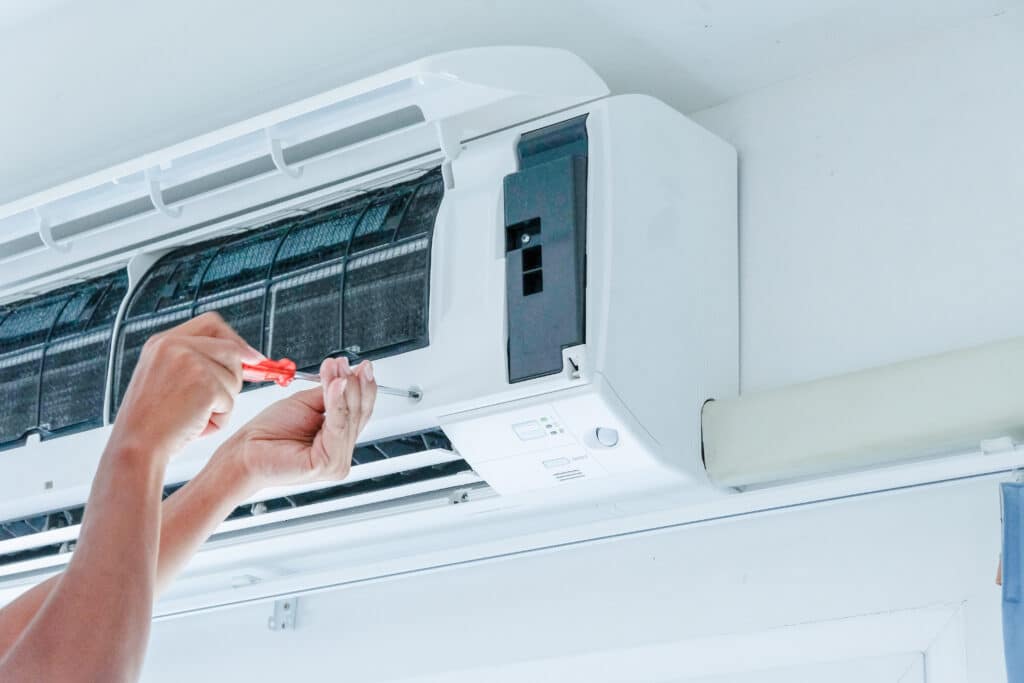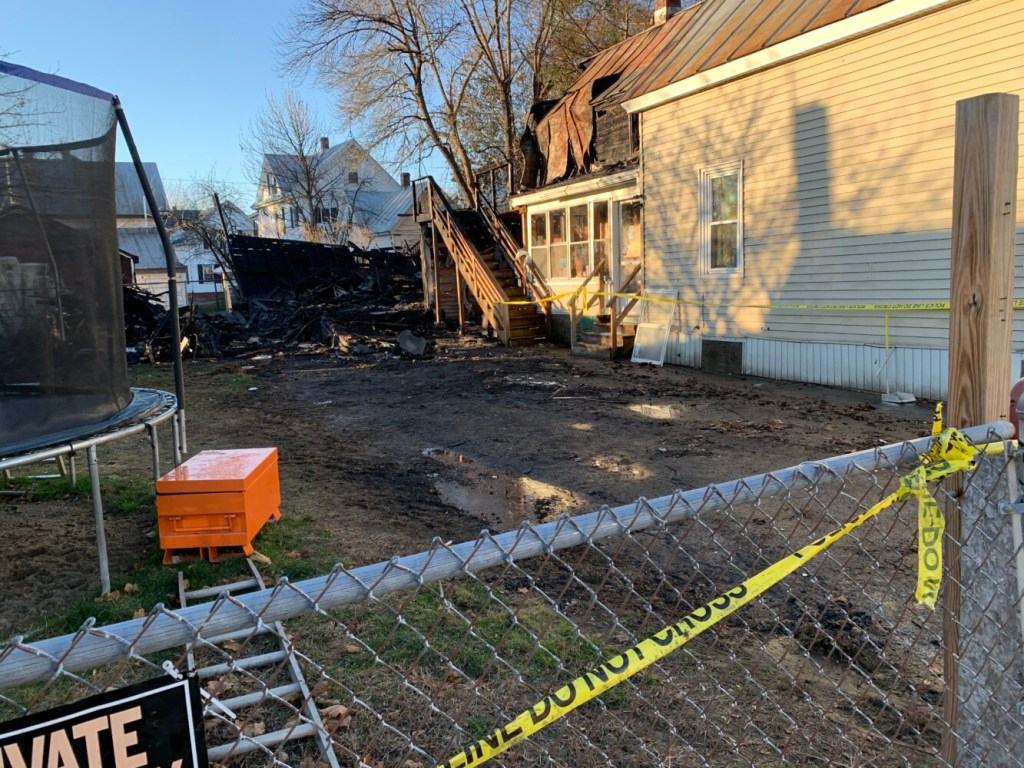A clogged drain is one of the most common causes of a bad smell coming from the kitchen sink. When debris, hair, and other materials accumulate in the drain, it can create a blockage, causing water to back up and produce a foul odor. This can also lead to slow draining and even standing water in the sink. If you notice a bad smell and slow draining in your kitchen sink, it's likely that your drain is clogged and needs to be cleared.1. Clogged Drain
Bacteria thrive in moist and dark environments, making your kitchen sink an ideal breeding ground. When food particles, grease, and other organic matter build up in the sink, bacteria can quickly multiply, producing a strong and unpleasant odor. Regularly cleaning and disinfecting your sink can help prevent bacteria buildup and keep bad smells at bay.2. Bacteria Buildup
It's common to rinse dishes and utensils in the kitchen sink before placing them in the dishwasher, but food debris can easily get stuck in the sink's drain. Over time, this can cause a buildup of rotting food, resulting in a foul smell. To prevent this, make sure to scrape off excess food into the trash before rinsing dishes in the sink.3. Food Debris
Grease and oil from cooking can easily make their way into the kitchen sink, especially if you pour them down the drain. As the grease cools, it solidifies and can coat the inside of your pipes, trapping food particles and causing a bad smell. To avoid this, dispose of grease and oil in the trash instead of pouring them down the sink.4. Grease Accumulation
The vent pipe is a vital component of your plumbing system that helps release sewer gases and prevent them from entering your home. If this pipe becomes blocked, either due to debris or a bird's nest, it can cause foul odors to come from your kitchen sink. A professional plumber can help clear the blockage and eliminate the smell.5. Blocked Vent Pipe
If you notice a strong sulfur or rotten egg smell coming from your kitchen sink, it's possible that there is a sewer gas leak. This can occur if there is a crack or hole in your plumbing pipes, allowing gases to escape into your home. A sewer gas leak can be dangerous and should be addressed immediately by a licensed plumber.6. Sewer Gas Leak
If you have a garbage disposal in your kitchen sink, it's essential to regularly clean and maintain it. Over time, food debris can get trapped in the blades and cause a foul odor to emit from the sink. If your garbage disposal is old and not functioning properly, it may be time to replace it with a newer model.7. Old Garbage Disposal
Mold thrives in damp and dark environments, making your kitchen sink an ideal breeding ground. If you notice black or green spots around your sink and a musty smell, it's likely that there is mold growth. This can be harmful to your health and should be addressed immediately. Regularly cleaning and drying your sink can help prevent mold growth.8. Mold Growth
If you have standing water in your kitchen sink, it can quickly become a breeding ground for bacteria and mold, resulting in a bad smell. Standing water can be caused by a clogged drain, blocked vent pipe, or even a leaky pipe. It's crucial to address the issue promptly to eliminate the bad smell and prevent further damage to your plumbing system.9. Standing Water
If your kitchen sink was not installed correctly, it can lead to various issues, including a bad smell. Improper installation can cause leaks, clogs, and other problems that can result in foul odors. It's essential to hire a professional plumber for proper installation to avoid these issues and ensure your sink functions correctly.10. Improper Installation
Why Does My Kitchen Sink Smell Bad?

If you've noticed a foul odor emanating from your kitchen sink, you're not alone. This is a common problem that many homeowners face, and it can be quite unpleasant. But what exactly is causing this bad smell? And more importantly, how can you get rid of it?
The Culprit: Food Particles and Bacteria

The main reason for the bad smell coming from your kitchen sink is likely due to food particles and bacteria buildup. When food scraps get washed down the drain, they can get stuck in the pipes and start to decompose. This decomposition process produces a gas that creates the unpleasant odor.
Bacteria are also a major contributor to the bad smell. These microscopic organisms thrive in moist environments, making your kitchen sink the perfect breeding ground. As they feed on the decomposing food particles, they release sulfur compounds that give off that distinct rotten egg smell.
Solutions to Get Rid of the Bad Smell

Fortunately, there are several ways to eliminate the bad smell coming from your kitchen sink. The first step is to clean your sink thoroughly. Use a mixture of hot water and baking soda to scrub the sink and remove any food particles and bacteria that may be causing the odor.
You can also try pouring a cup of white vinegar down the drain and letting it sit for a few hours before rinsing it with hot water. The acidic properties of vinegar can help break down any buildup and neutralize the odor-causing bacteria.
Another effective solution is to use a plunger to clear out any clogs in the drain. This will help dislodge any trapped food particles and allow them to flow out of the pipes.
Preventing Future Smells
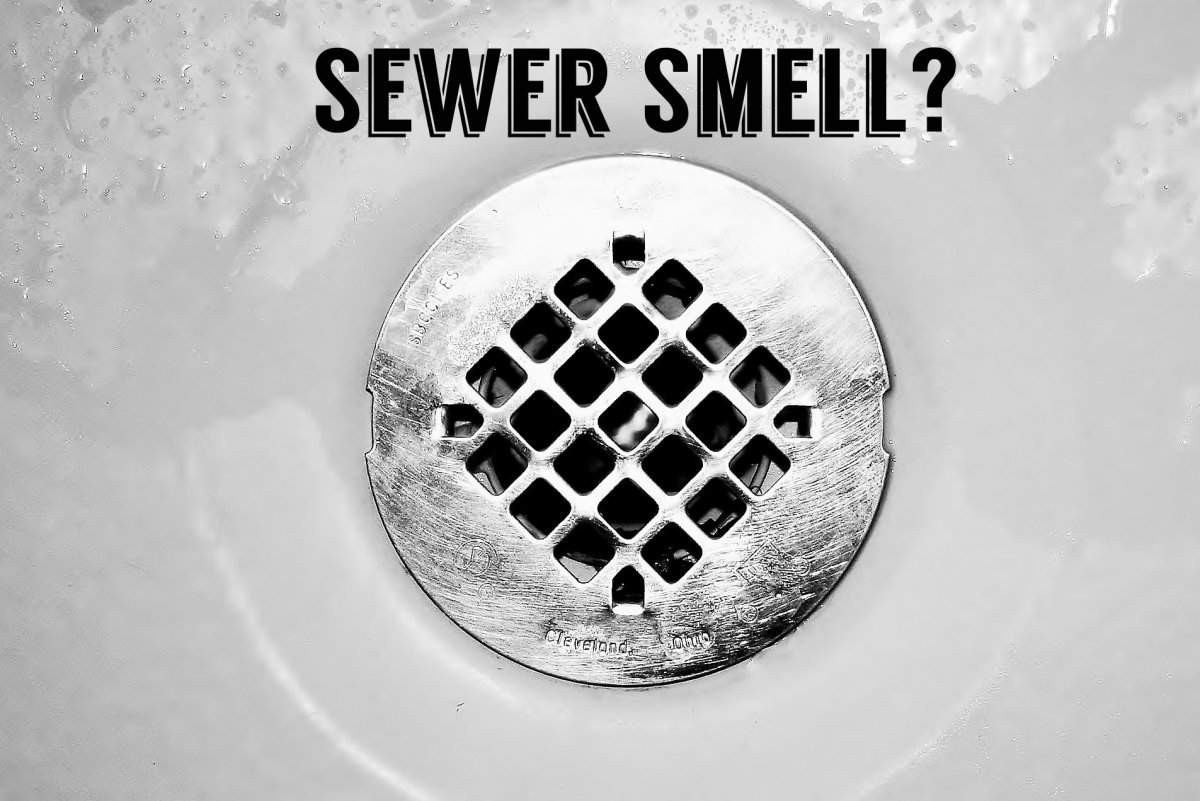
To avoid dealing with a smelly kitchen sink in the future, it's important to implement proper maintenance habits. Avoid putting large chunks of food down the drain and use a sink strainer to catch any small particles. Regularly cleaning your sink with hot water and soap can also help prevent odor-causing buildup.
In addition, consider using a garbage disposal to grind up food scraps before washing them down the drain. This can help prevent clogs and reduce the amount of food particles that accumulate in your pipes.
With these solutions and preventative measures, you should be able to get rid of the bad smell coming from your kitchen sink and enjoy a fresh, clean kitchen once again.











/cdn.vox-cdn.com/uploads/chorus_asset/file/19616741/drain_xl_0.jpg)


